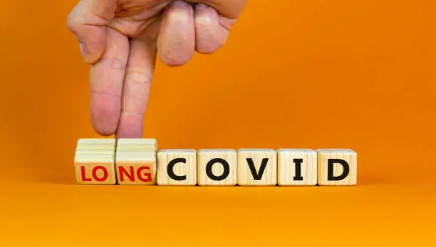Blitshteyn worries about the low rate of full recovery she observed in a March 2021 case series of 20 patients with new-onset postural orthostatic tachycardia syndrome (a condition affecting blood flow that leads to dizziness, rapid heart rate, and fainting) and other autonomic disorders after Covid. While 60% of patients improved, only 15% returned to working full-time after eight months of follow-up. “It’s going to be a pandemic of long Covid,” she said. “We’re going to have a lot of people who are quite disabled and a lot of people with chronic illness.”
Others are more sanguine, if still cautious.
“I would almost say the vast majority of people with long Covid will get better over time, given time, given support, and given symptomatic relief and common-sense approaches to reactivating themselves,” Kathleen Bell, department chair of physical medicine and rehabilitation at UT Southwestern Medical Center in Dallas, said on the Infectious Diseases Society of America call with reporters. “But I don’t think at this point again that anyone can say how long this long Covid lasts because there are a variety of factors — the presence of type 2 diabetes, for instance, the presence of preexisting pulmonary disease — many things that will affect the length of recovery from long Covid.”
That path to recovery does vary, UNC’s Baratta agreed. Some who get hit hard by the initial illness or by the initial long Covid bout have a slow, gradual recovery. For others, symptoms fluctuate, so they might have a few good weeks followed by a few not-so-good weeks. Some feel like they’re getting worse, although he said that’s not as common.
“People do get better. They haven’t gotten to 100%, like they feel completely normal, but most of the time they do feel better.”
BENJAMIN ABRAMOFF, DIRECTOR OF THE UNIVERSITY OF PENNSYLVANIA POST-COVID ASSESSMENT AND RECOVERY CLINIC
Penn’s Abramoff sees a similar pattern of incremental progress. “People do get better,” he said. “They haven’t gotten to 100%, like they feel completely normal, but most of the time they do feel better.”
But when does that happen?
Brode of the University of Texas has been encouraged to hear that when people are no longer drained from any small activity — classified as post-exertional malaise — all their symptoms start to get better. That improvement suggests a reprieve from an overactive immune response, he said, especially in women in their 30s and 40s. Women tend to outnumber men at long Covid clinics, supporting theories about gender differences in immunity.
“Some people’s immune systems go haywire after Covid. We’re trying to look at the similarities between chronic fatigue and fibromyalgia and long Covid,” he said, echoing Blitshteyn, Bhadelia, and others in the field. “We’ve seen post-viral illnesses cause chronic fatigue, small fiber neuropathy, autonomic dysfunction. I think there’s something probably specific to Covid, but we’ve never seen a virus on this scale in the modern era.”
Where does that leave patients now?
“I think we’re getting more confident that even just some of the basic health strategies of self-care, rest, physical therapy, and some symptomatic medication are really effective,” Brode said. “Symptomatic treatment is good, not great.”
Joni White tells a different story.
“They saved my life as far as I’m concerned. At least they saved my brain,” she said about her therapists at UNC. “They gave me the tools I needed that I didn’t know were out there.”
